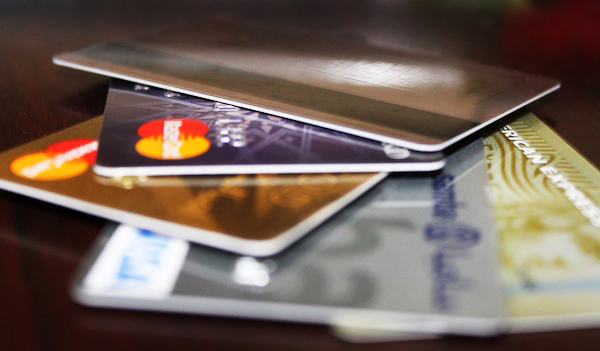Credit Cards & Loans
Watch for these charges when using debit and credit cards abroad

Debit and credit card surcharges have been banned across the EU but there are still a number of fees you could face when using your plastic.
The annoying charge applied when paying for goods and services by personal credit and debit cards was banned last week, meaning shoppers should no longer be stung by costs added to their transactions.
While some suggest this consumer-friendly move may backfire as companies seek to pass on costs through higher prices or new service fees (as seen with Just Eat), others are pleased they’re no longer penalised for paying with plastic.
The ban on credit and debit card surcharges is effective across the EU, and applies to all purchases made where the bank of the cardholder or retailer are within the EEA, which also includes Iceland, Liechtenstein and Norway.
However, the Treasury confirmed that UK shoppers spending on plastic in the UK (and in other countries within the EU/EEA) could still face these surcharges. This is because the ban only applies where a ‘payment processor’ is based. As an example, if you buy something in the UK but it’s processed in the US, surcharges can still be applied.
It’s up to the customer to check this information – if you’re asked to pay in dollars, for instance, it’s a good sign you may face a surcharge for paying with plastic.
When using your cards abroad, even in the EU where the surcharge ban applies, you can open yourself up to additional fees, making it a more expensive way of paying for goods and services.
Data analysis site Defaqto said there are differences in how customers might be charged for credit and debit card use:
Current account debit card fees
- Foreign exchange fee: a percentage charge for the cost of exchanging sterling into the currency you are spending abroad. Typically 2.50% to 2.99%, although 12 current accounts don’t apply this fee.
- Debit card charge: a percentage fee for using the card abroad. Typically 0.50% to 2.75%. More than half of current accounts don’t charge this fee.
- Total card fee: the sum of the foreign exchange fee and the debit card charge. Typically 2.75% to 4%. Only two providers have no fees at all in Europe (Cumberland Plus, and Metrobank Personal Current Account), and only one account (Cumberland Plus) charges no fees anywhere in the World.
- ATM fee: a fixed fee in pounds for any cash withdrawal abroad. Any non-sterling transaction fee will also be applied, if the current account has one. You might also be charged by the ATM machine supplier too.
Credit card fees
- Foreign exchange fee: a percentage charge for the cost of using the card in a currency other than sterling. Typically 2.75% to 2.99%, although 23 cards don’t apply this fee.
- ATM fee: a fee which is the higher of a percentage of the amount withdrawn, or a flat fee in pounds, for withdrawing cash on a credit card while abroad. Any non-sterling transaction fee will also be applied, if the credit card has one. You might also be charged by the ATM machine supplier too.
Top debit and credit cards for overseas spending
Defaqto has outlined the accounts with no foreign exchange fee for debit card usage abroad:
Below, Defaqto lists the credit cards with no foreign exchange fee for debit card usage abroad:

